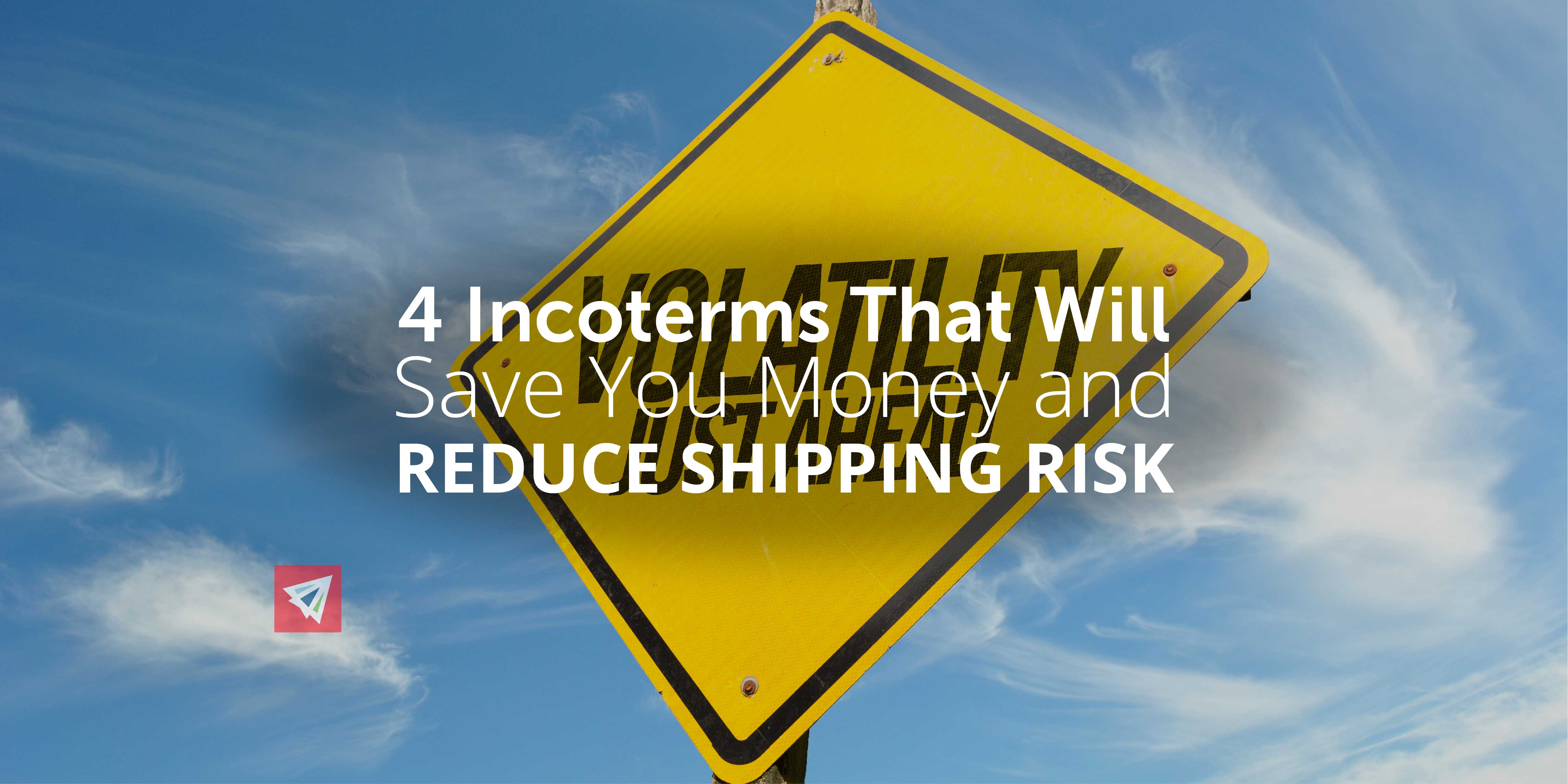Do you ever feel like your staring at a bowl of alphabet soup with export terminology? If so, incoterms have probably been at the center of your problems. Through the conversations we’ve had with customers, it seems as though many shippers use one or two incoterms without a complete understanding of what incoterms are and all their available options.
What Are Incoterms?
Incoterms are terms that state the responsibilities of the shipper and buyer involved in an international or domestic shipment.
For example, in a door-to-door shipment, the cargo must be picked up by a truck, brought to a warehouse, consolidated, brought to a port, loaded onto a vessel, transported overseas by said vessel, and have everything repeated on the foreign side. While in transit, the costs associated with delivery and insurance can be very high. Thus, it is quite rare that any one side of the party should pay for all of it. This is where incoterms come in.
Incoterms state who is responsible to pay for and insure the cargo in each stage of its transit from point A to point B. If your incoterms state you are responsible until the goods are unloaded at their overseas port, then you are liable to pay for the insurance and/or any accidental loss or damages that occur between their pickup and unloading at the foreign port. Respectively, any damages or accidental loss that occur after they have departed from the foreign port inland are the responsibility of the other party in the incoterm agreement.
4 Incoterms that Will Save You Money and Reduce Shipping Risk
Here are our recommendations on the 4 best incoterm agreements to save your company money and reduce your potential liability for cargo damage or loss. Some incoterms are more popular than others, and as a result
FOB
If you are currently shipping on CFR or CIF terms, you could save money by switching to FOB incoterms. On FOB, you are being billed by your forwarder when it arrives, and you often have terms with your own forwarder. Essentially, it gives you more time to pay since you are paying later for the freight portion. In addition, you have one single U.S. forwarder involved. They are the ones receiving the freight and billing you. If it’s CFR or CIF, there will be another U.S. forwarder that receives the documents from the foreign forwarder involved in the transaction. This other U.S. forwarder will hand the documents over to your U.S. forwarder for a fee that typically tacks on an extra $60-$95 to your bill.
CFR
If you are exporting and selling cargo to a foreign buyer, you may be better off with a CFR (Cost and Freight) incoterm. With CFR you have more leverage over the cargo’s transit. This allows you to perform with higher customer service levels, as the freight is in your view and control until it hits the foreign port. If you have a reliable U.S. forwarder, you can trust that they will get the cargo collected and to the destination sea port quickly and affordably. You as the exporter will bill your customer for the export charges, making it an opportunity to generate additional revenue.
EXW
As an exporter, EXW (ExWorks) would mitigate your costs. But you’d also be sacrificing your control over collection of the shipment from your facility, transit overseas, and all the cargo movement that happens in the foreign destination. You are essentially giving all cargo control over to your foreign buyer to arrange.
This is great for cost savings, but not so much for control and risk mitigation. However, if you are an importer, the exact opposite applies. As an importer on EXW incoterm, you are responsible for paying all transportation and insurance charges. This gives you complete visibility and control over the entire shipping process and helps to greatly reduce shipping risks (assuming you know the safest way to ship your cargo.)
DDP
DDP is the exact opposite of EXW. As an exporter on DDP (Delivery Duty Paid) incoterm, you pay for all shipping charges to get the container out of the U.S. and to the foreign destination. While this is a bit more pricey, it allows you to have full control over the cargo.
As you might expect, as an importer on DDP terms your transportation costs are wiped completely and you sacrifice control over arranging the cargo’s transport. Depending on your situation, this may be your best option.
Next Steps
If you are looking to trim your costs, or provide more visibility and risk-mitigation to your shipping process, revisiting your incoterms may be the solution. The above incoterms provide a variety of affordable or safe solutions depending on your company’s shipping practices. Make sure to talk with a freight forwarder that is very experienced with incoterms, like Interlog USA to select the one(s) that are best for you.

One thought on “4 Incoterms That Will Save You Money and Reduce Shipping Risk”